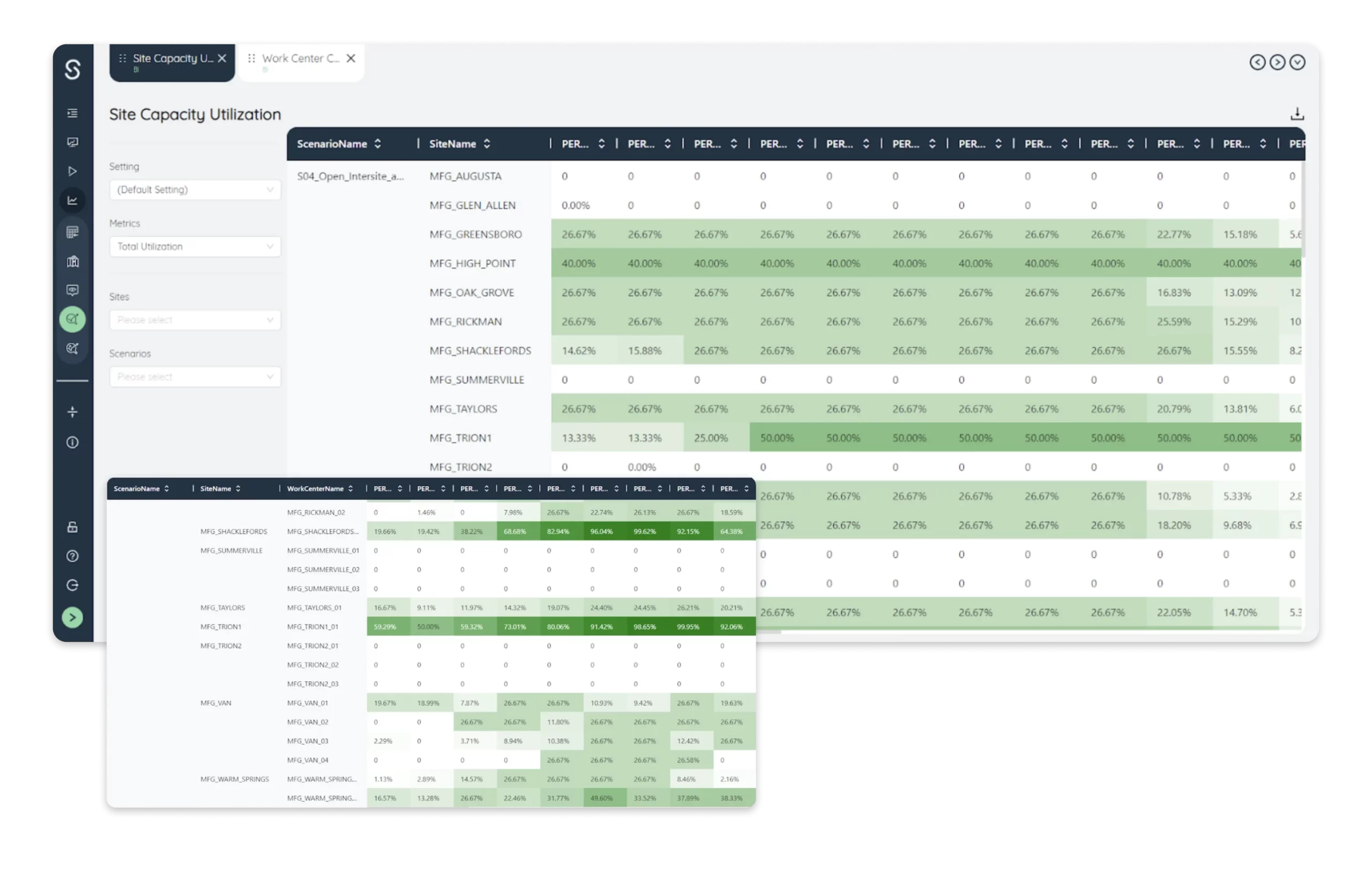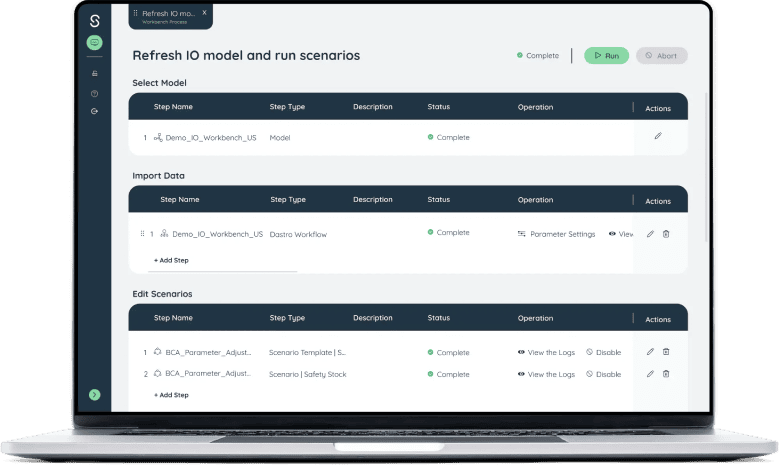CAPEX Planning
Challenges

Global supply chains are undergoing restructuring, and capacity is being heavily impacted. Decisions on future investments must be made with a holistic approach.

There will always be imbalances between supply and demand.

Maintaining the right level of capacity is crucial to maximizing returns on assets, reducing excess inventory, and overall costs, while meeting market demand.
Sophus Solution

Recommend investments in new capacity, including the return on assets.
Choose the best site based on total supply chain costs, including logistics, suppliers’ networks, and customer locations.
Allocate bottleneck capacity throughout the process, whether by investing in new production lines, adding extra shifts, outsourcing, or expanding internal capacity.
Recommend strategies to handle seasonality, including pre-building during low seasons or partnering with OEMs during high seasons, and analyze the cost and risk impact.
Advise on capacity distribution, either centralizing production for economies of scale or decentralizing for greater flexibility.
Benefits
Return on assets improvement of
20-25%
Overall cost reduction of
10%
Inventory reduction of
35%

Request a demo


